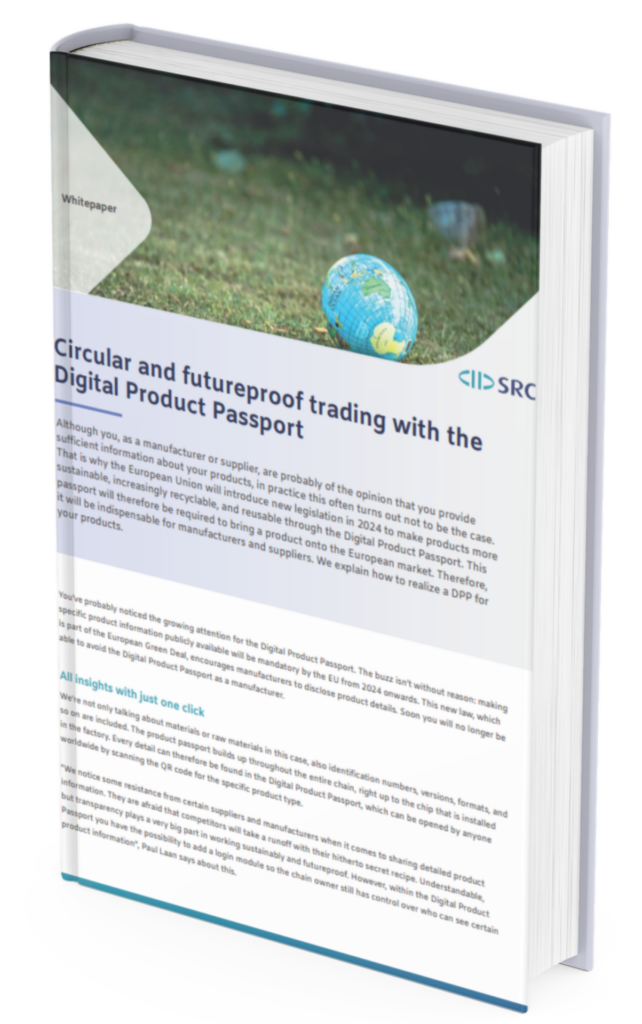From 2024, the Digital Product Passport will be mandatory for manufacturers of product categories with batteries, electronics, and textiles in the EU. A considerable challenge for product owners, but a great development for more sustainable product lifecycles. The Digital Product Passport is therefore called THE innovation for the manufacturing industry. But what is the Digital Product Passport and how does the DPP affect your business?
Consumers all over the world collectively throw away more than 57 billion kilos of electronic waste every year. Think of refrigerators, chargers, phones, lamps, TV screens, cameras, and more. All these products are processed in anything but sustainable ways, especially since less than 50% of those products are handed in at the right places. Only because the end-user doesn’t know any better. Partly for this reason, making specific product information publicly available in the Digital Product Passport will be mandatory by the EU from 2024 onwards.
DPP mandatory in the EU
The Digital Product Passport contains specific data for a product category, and this data is accessible to almost everyone via electronic means by scanning the code. In this way, the European Union wants to reduce the environmental impact of products during their life cycle. And that is much needed! The global mountain of electronic waste is growing by the day.
The new law, which is part of the European Green Deal, encourages manufacturers to disclose product details in the Digital Product Passport. This not only ensures that manufacturers communicate transparently about their products but also ensures that those involved will know exactly what can be done with the product throughout the entire cycle. In this way, electronic waste can be processed more and more sustainably.
From linear to circular
The current product cycle is still mainly linear: raw materials are collected, the product is manufactured, sold, used, runs out or breaks down, and is thrown away. Occasionally the product is repaired or recycled, but then the user must know that this is possible by forehand. That information still needs to be included way too often. The Digital Product Passport will make a big difference in this matter!
The focus is currently on manufacturers with diverse resources and products with the greatest chance of recycling. These are the product categories with batteries, electronics, and textiles. For them, the use of the Digital Product Passport will be mandatory from 2024 onwards to sell a product in Europe.
In our new whitepaper ‘Circular and futureproof trading with the Digital Product Passport‘, you can read exactly how this works and how this affects your business.
Download the whitepaper here:
